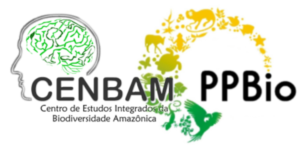 Português
Português English
English
Languages
Women from the village Maturacá (AM) discover a species of fungus used in basketry.
The Yanomami Women's Association, Kumirãyôma, have launched a book that describes the përisi, a shiny black wire that they draw from the forest floor, in a bilingual book called "Përɨsɨ - the fungus that Yanomami women use in basketry".
This book details women's knowledge of the use of përɨsɨ, a new species of fungus (Marasmius yanomami sp. Nov.) which is used by the Yanomami to decorate their wicker baskets.
The story of how the fungus is collected and used is written in Yanomami and Portuguese and is the result of intercultural research bringing together the power of indigenous traditional knowledge and science, as well as broadening perspectives and helping to strengthen Yanomami culture.
"This work is important because it is a record of our knowledge; of how we use and manage the përɨsɨ and this know-how can be inherited by our children, grandchildren and grandchildren. And it is also important to show that our basketwork is not just about making money, but also publicising how we Yanomami women work."; write the authors.
The book is part of the series "Saberes de la Floresta Yanomami", which recently presented traditional Yanomami knowledge about fish, crustaceans and mushrooms. The book Ana Amopö: Mushrooms was the winner of the Jabuti Prize in the Gastronomy category in 2017.
The book Përɨsɨ - the fungus that Yanomami women use in basketry was produced in partnership with the Socio-Environmental Institute (ISA) and with the collaboration of the National Institute of Amazonian Research (INPA).
Where to buy the book
Manaus (AM)
The Amazon Gallery
Rua Costa Azevedo, 272. Largo São Sebastião, Manaus (AM)
Melina Aguilar: (92) 3302-3633)

